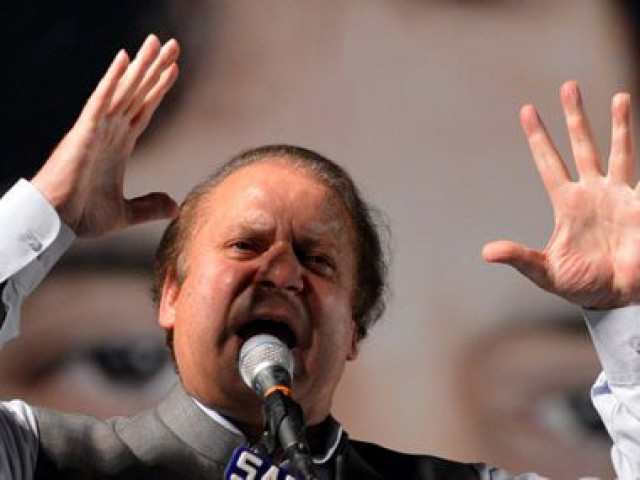Close ally irked by PML-N’s solo flight on Panama leaks
JUI-F believes it should have been consulted, along with parliament at large

PHOTO: AFP
JUI-F believes the ruling party should have routed the Panamagate issue through parliament instead of bypassing it and facing the opposition Pakistan Tehreek-e-Insaf (PTI) head on, political sources told The Express Tribune. The revelation best explains why JUI-F chief Maulana Fazlur Rehman and his aides have been passive instead of active in supporting Prime Minister Nawaz Sharif over the issue.
Panama leaks hearing: PML-N peeved by judges’ remarks
“Of late, there hasn’t been smooth sailing. Ever since Panamagate landed in the Supreme Court, they [JUI-F] are not very much around,” a credible source said.
PML-N stalwarts said that unlike the 2014 protests against the government, the ruling party’s decision not to ‘engage’ the JUI-F this time entailed pertinent political reasons.
“An impression was created that the PML-N was fully dependent on its allies like JUI-F in surviving a 2014-like crisis. This dented us politically in a big way. Excessive reliance on political allies in a challenging situation is counterproductive—they become more of a burden and try to draw benefits and mileage beyond their political standing,” an insider said.
The sources said JUI-F gained ‘inevitable’ importance in the aftermath of 2014 protests and the federal government had to accommodate the party at several levels —from granting hefty development funds to JUI-F lawmakers and prioritising work in their constituencies to assigning them important portfolios.
After the 2014 crisis, PML-N emerged confident that it could brave the odds, the insiders said. When PTI re-switched to protest mode, PML-N decided not to give much importance to allies, parliament and other parties.
“This time around, we decided it would be just us and them (PTI) and no negotiators in between. This has not gone down well with Maulana and company,” confirmed a trusted aide of the prime minister.
JUI-F circles claimed the party leadership insisted the federal government adopt a ‘give-and-take’ policy in negotiations with the opposition on setting up an inquiry commission to investigate the Panama leaks even if the situation demanded the inclusion of the premier’s name in the probe. Reportedly, Fazl also advised the prime minister to realistically bargain with the opposition using the platform of the Parliamentary Committee on Panama Papers.
The two allies also developed differences when the PML-N decided not to consult other parties and parliament after PTI announced its plan to lock down Islamabad. Even though, the premier set up a seemingly ceremonial committee comprising a National Party (NP) and two PML-N leaders to reach out to parliamentary parties against PTI, the panel did not yield any result and it did not include any JUI-F member.
“As a frontline ally at the centre, we deserved to be accommodated in the panel,” said a JUI-F leader. “They bypassed parliament, political parties and allies like us, and the result is that today they are feeling the heat of Supreme Court’s proceedings on the Panamagate scandal with the prime minister’s name included in the case.”
Panamagate case: Ruling party seeks refuge from SC heat in populist projects
Senior JUI-F leader and Senate Deputy Chairman Maulana Abdul Ghafoor Haideri offered a cautious response on the issue. “Even though our party is allied with PML-N at the centre, we are in opposition in Balochistan. It means we both have a separate set of priorities on given issues, despite being allies.” He added that JUI-F “supports PML-N on different issues.”
“The Panama leaks is a crucial issue and we are with the government in case they need us. A consultative approach, however, would have prevented the situation from reaching this point today,” he said.
Published in The Express Tribune, November 13th, 2016.



















COMMENTS
Comments are moderated and generally will be posted if they are on-topic and not abusive.
For more information, please see our Comments FAQ